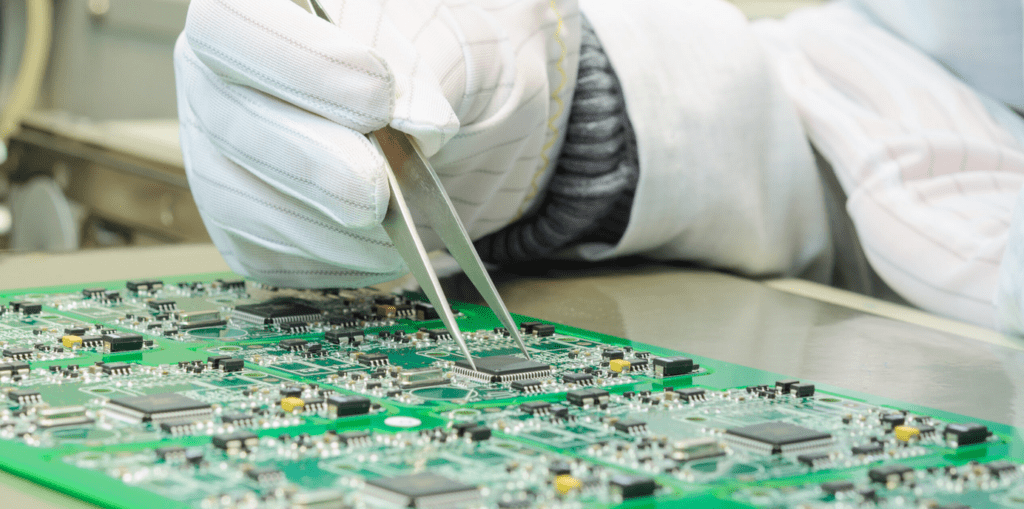In the dynamic world of electronics, turnkey electronics manufacturing serves as a comprehensive solution for many businesses looking to streamline their production processes. This approach integrates design, production, and assembly, ensuring that the final product is delivered ready for use. Implementing best practices in this field is crucial to meet the demands of quality, efficiency, and cost-effectiveness.

The Importance of Turnkey Solutions
Turnkey solutions are vital for companies that wish to focus on their core competencies while outsourcing the complexities of manufacturing. By opting for a turnkey solution, companies can mitigate risks, manage costs, and improve time-to-market. This is especially beneficial in the ever-evolving electronics industry.
Understanding the Turnkey Approach
The turnkey approach involves a provider taking full responsibility for all stages of production, from initial design to the final delivery. This ensures that businesses receive a fully functional product without needing to manage multiple suppliers or processes.
Key Best Practices in Turnkey Electronics Manufacturing
1. Partnering with the Right Provider
Choosing a reliable turnkey provider is the first step towards a successful manufacturing process. Look for providers with a proven track record, strong customer reviews, and a robust portfolio. For example, the article on Automated Inspection highlights the importance of quality control, which is a critical factor to consider when selecting a partner.
2. Emphasizing Quality Assurance
Quality assurance should be ingrained in every step of the manufacturing process. Implementing rigorous testing and inspection procedures ensures that the end product meets the required standards. The blog post on Consistent Product Quality provides insights into maintaining high-quality outputs.
3. Streamlining the Supply Chain
An efficient supply chain is pivotal for reducing lead times and costs. Collaborate with suppliers who are reliable and capable of delivering components on time. This will enhance the overall efficiency of the turnkey manufacturing process.
4. Focusing on Cost Management
Cost management is crucial in turnkey electronics. Opt for providers who offer transparent pricing and help manage costs through bulk purchasing and optimized logistics. The post on Reducing Overhead discusses strategies to keep expenses in check.
Leveraging Technology in Turnkey Manufacturing
5. Adopting Advanced Technologies
Incorporating advanced technologies like IoT, AI, and automation can significantly enhance the turnkey manufacturing process. These technologies improve accuracy, reduce errors, and increase production speed.
6. Utilizing Data Analytics
Data analytics plays a crucial role in optimizing manufacturing processes. By analyzing production data, companies can identify bottlenecks, predict maintenance needs, and improve overall efficiency.
Ensuring Sustainability in Electronics Manufacturing
7. Implementing Sustainable Practices
Environmental sustainability in manufacturing is not just a trend but a necessity. Implementing eco-friendly practices like reducing waste, recycling materials, and using energy-efficient technologies can make a significant impact.
8. Complying with Environmental Regulations
Adhering to environmental regulations is essential for avoiding legal issues and maintaining a positive brand image. Companies should stay updated with regulations and ensure compliance throughout their manufacturing processes.
Enhancing Communication and Collaboration
9. Maintaining Open Communication
Effective communication between all parties involved in the turnkey process is vital for success. Regular updates and transparent communication help in aligning goals and addressing issues promptly.
10. Encouraging Collaboration
Collaboration between different teams, including design, production, and logistics, ensures a seamless manufacturing process. It helps in identifying potential challenges early and finding solutions collaboratively.
Conclusion
Implementing best practices for turnkey electronics manufacturing ensures efficiency, quality, and sustainability. By choosing the right partners, leveraging technology, and focusing on sustainability, companies can achieve successful outcomes. For more insights on how turnkey solutions can benefit your business, visit Leadsintec.

FAQs on Turnkey Electronics Manufacturing
What is turnkey electronics manufacturing?
It involves outsourcing the entire production process to a single provider who handles everything from design to delivery.
Why choose turnkey manufacturing?
It offers benefits like reduced costs, improved efficiency, and faster time-to-market.
How does turnkey manufacturing ensure quality?
Through rigorous quality assurance processes and advanced technologies that monitor each stage of production.


